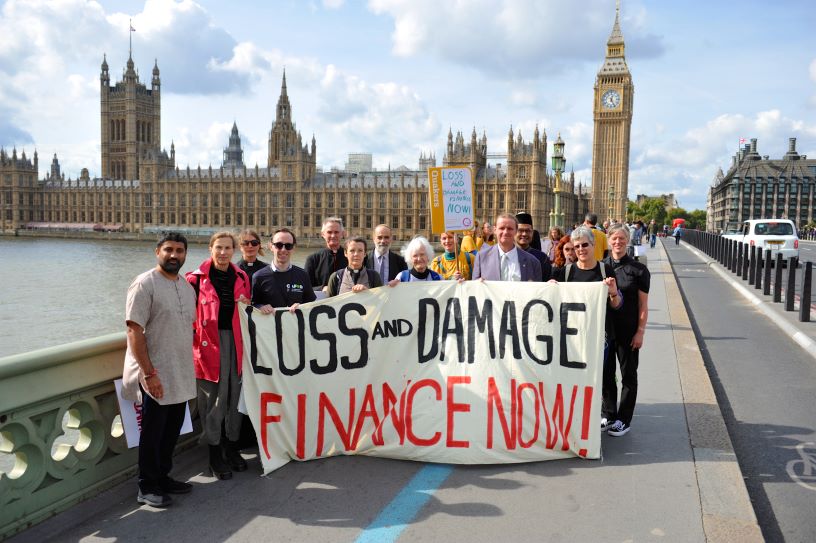Quakers challenge militarised responses to climate change
The UK government must prioritise global security over narrow national interests, Quakers in Britain have urged in evidence to a parliamentary enquiry.

Climate breakdown can only be solved by international cooperation, they told the Environmental Audit Committee's (EAC) inquiry into climate change and security.
This means urgent action to phase out fossil fuels and support a just transition to a global low carbon economy, Quakers said, as well as paying our fair share of loss and damage funding.
[QUOTE-START]
Genuine prevention would involve tackling the root causes of climate breakdown
- Quakers
[QUOTE-END]
It would not only be immoral for the UK to prioritise its own national security, Quakers said, but also ineffective, given that climate breakdown does not respect national borders.
The evidence is part of new work for Quakers in Britain, a historic peace church, looking at the links between climate breakdown, war, and militarism.
The UN's Intergovernmental Panel on Climate Change warned in 2021 that the global threat level posed by climate change was a “code red for humanity."
Now the EAC is considering the impact of climate change on the UK's national security, and how the UK should respond to extreme weather events.
In their evidence, Quakers said that risks the UK faces from climate breakdown are much lower than those faced by the most climate-vulnerable countries, which did the least to cause the crisis.
“We are deeply concerned that the government's policy decisions are increasing the severity of these threats rather than acting to mitigate them," they said.
“Genuine prevention would involve tackling the root causes of climate breakdown."
Climate change is a major source of global instability, causing and heightening tensions, prolonging conflicts, and polarizing nations, the EAC said.
But Quakers warned against alarmist narratives about climate change leading to an unsafe world.
War and militarism have contributed significantly to climate breakdown, and militarised responses try to keep a lid on the symptoms rather than building a safer world in the long term, they said.